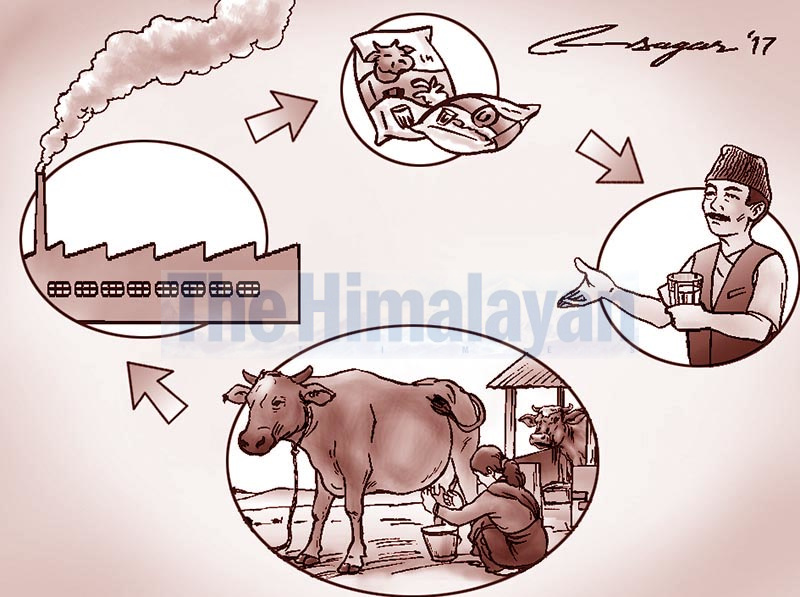DIA seeks govt support to operate milk powder plants
Kathmandu, February 24
The Dairy Industries Association (DIA) has urged the government to create an environment for the milk powder plants to operate in a full-fledged manner.
Addressing the inaugural session of the 11th annual general meeting of DIA, the association’s President Araniko Rajbhandari requested the government to help bring all the milk powder plants into operation and establish more if needed.
“Instead of bringing foreign investment in the dairy sector, it would be better to make this sector, which is becoming self-reliant, more robust,” he said, adding, “Milk production is increasing each year in the country and farmers are looking for a market.
Thus, the government has to handle this situation wisely instead of looking for foreign investment to develop the sector.”
According to the Food and Agriculture Organisation of the United Nations, one person should drink 90 litres of milk annually.
The country’s annual milk production is sufficient to cater to 82 litres of milk per person, Rajbhandari added.
He further said that the production is increasing each year and soon the country will be self-reliant on milk. “Owing to lack of sufficient milk powder producing plants, farmers have been forced to incur losses as their produce has been going to waste.”
Currently there are three milk powder plants — in Biratnagar, Pokhara and Chitwan.
Of which, Chitwan milk powder plant has recently resumed its operation after being shut down for a long time. Rajbhandari, however, said that the country needs 3,500 tonnes to 4,000 tonnes of milk powder annually while the three milk powder plants can produce only around 2,000 tonnes. “For immediate solution, government should allow the industries to import milk powder, while more milk powder plants should be established for a long-term solution.”
In response, Baikuntha Aryal, secretary at Ministry of Industry, Commerce and Supplies, said government is holding discussions with all stakeholders to address issues plaguing the dairy sector while ensuring the introduced measures do not adversely affect one particular part of the sector.
During the event, DIA also launched ‘Dairy Processing Handbook for Nepali Industries’ that provides practical knowledge about milk production, milk testing and processing.






